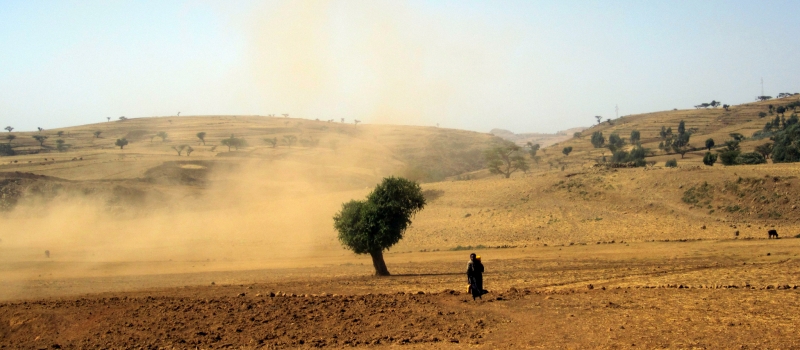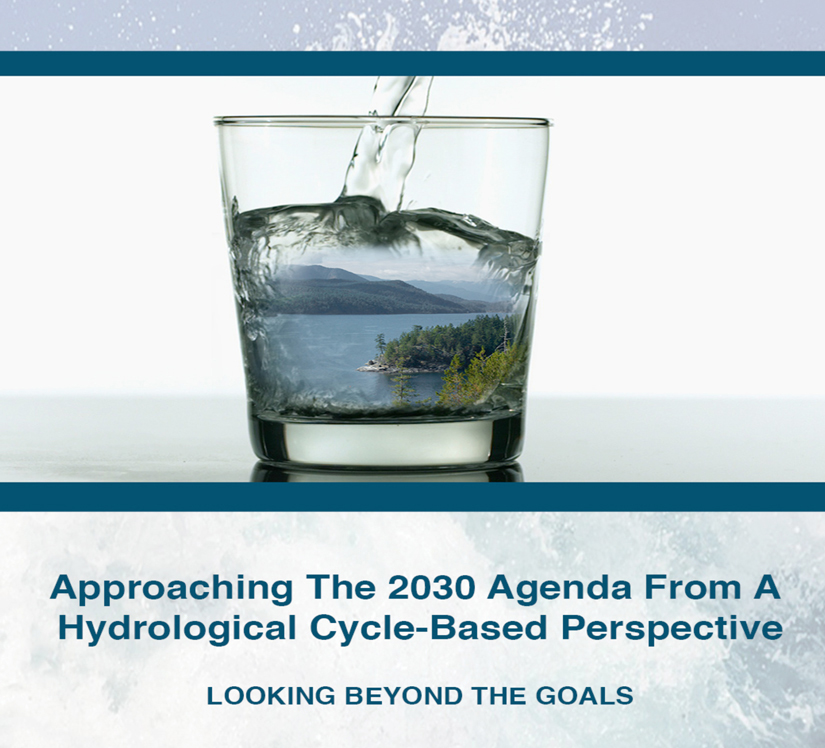
Water related disasters are increasing worldwide. From extreme floods to severe droughts most of us have some experience.
“Ultimately, it is water-related ecosystems that provide water services to society. They are important for improving water quantity, because they can capture and store water, water quality, because they can decompose and/or absorb water pollutants, and for other purposes such as providing fish and construction materials. Target 6.6 seeks to halt the degradation and destruction of these ecosystems, and to assist the recovery of those already degraded. The target includes water-related ecosystems such as vegetated wetlands, rivers, lakes, reservoirs and groundwater, as well as those occurring in mountains and forests, which play a special role in storing freshwater and maintaining water quality.” View Full: UN Water, Target 6.6, Ecosystems, 2015
Even if we have not yet personally experienced these disasters, most of us have heard about water shortages, food scarcity and climate related disasters. We know that they are real dilemmas that many people are facing right now and which most families will be affected by, unless the fundamental causes for them are addressed effectively.
“A broad range of positive forest-water interactions can be called upon to move greater amounts of water across continental space and potentially to regions that are more vulnerable to declining water availability, in particular in the context of climate change. Likewise, forest-water interactions can help to restore and improve groundwater recharge, terrestrial surface cooling and the improvement of flows from the various water towers of the world.” UN Forum on Forests and Water, 2018
In these present times there seem to be too many new environmental and social crises occurring for us to be able to properly address any one of them.
We succeed in partially addressing one and a new one rapidly arises. These indicate that a fundamental change of attitude is needed. It seems that a major part of this negative feedback loop is the way in which, we consider the environmental systems of Earth. All too often we divide interdependent natural systems up into different categories (e.g. food, water, forest, mountains, wetlands, wildlife, climate etc.) and we relate to them as if they are separate or only distantly related. We often treat an issue such as water security as if we could address it simply by devising better ways of managing, harvesting, cleaning and storing freshwater and reducing waste. However, for freshwater to be available, it is dependent upon many different ecological factors, which impact upon and regulate one another.
“Every tree in the forest is a fountain, sucking water out of the ground through its roots and releasing water vapor into the atmosphere through pores in its foliage. In their billions, they create giant rivers of water in the air – rivers that form clouds and create rainfall hundreds or even thousands of miles away.” View Full: Fred Pearce, ‘Rivers in the Sky: How Deforestation is Affecting Global Water Cycles’, 2018.Pdf
Because subjects such as water, food, climate and forests are often limited to the confines of different categories, it is very hard to get cohesive correlation between specialist information in each area.
This makes it much harder and more complicated to really address a situation and really get to the root of the problem. Many present global problems would be far easier to address if the rigid divisions between different categories were broadened to include recognition of the nexus and interdependent ecological dynamics that truly exist. However many world scientists were discussing this back in 2002 and previously in the USGCRP plan of action.
“Changes in land cover and land use have been extensive in the U.S. and in the rest of the world, and these changes have local, regional and even global impacts on the hydrological cycle.” View Full: USGCRP, Draft White paper, Chapter 7, 2002.Pdf
Through following such clear knowledge we would have been able to plan Sustainable Development Strategies much more effectively through supporting interconnected ecosystems in performing their natural functions and benefiting from the wide range of life supporting services that they provide. Maybe we still have a chance if we act swiftly for the good of all life. Evidence clearly shows that mixed forests not only play a major role in the functioning of both water and carbon cycles, which are the regulators of climate and weather systems globally; they also have a significant impact upon global food security.
“Forests perform vital ecosystem services, including the regulation of the water and carbon cycles and protection of biodiversity, that are essential to sustainable food production and food security and nutrition in the long term.”
Download: FAO, HLPE Report, 2017.pdf
It is time we work with nature to address the common obstacles facing all life on Earth. Through working together and adopting natural solutions, many of the environmental dilemmas that humanity is presently facing, could be effectively resolved. In the case of long-term reliable water management and disaster mitigation, acknowledgement of the essential role of mixed forests and biodiversity and ways of protecting and restoring it is imperative.
The natural world has adapted in so many astounding ways throughout millions of years to develop and address on going obstacles and succeeded against so many almost insurmountable odds. Now, for its own existence humanity needs to help it.
In September 2015 the new Sustainable Development paper called ‘Transforming our World: the 2030 Agenda for Sustainable Development’ was endorsed by world governments. Within it Goal 6 states: “Ensure availability and sustainable management of water and sanitation for all.” It was recognised in Target 6.6 of Goal 6 that protecting and restoring water related ecosystems would be necessary for realising this Goal.
“By 2020, protect and restore water-related ecosystems, including mountains, forests, wetlands, rivers, aquifers and lakes” Download: UN, Transforming our World: The 2030 Agenda for Sustainable Development,2015.pdf
In 2018 we submitted the document below as input to the UN Secretary General towards his 2019 Sustainable Development Report. It highlights the importance of SDG Target 6.6 and as a way of safeguarding the global water cycle and addressing the problems of deforestation.
Recognising that achieving fresh water security is central to national and international security, it should therefore be included as a crucial element within any long-term global defence strategies. This needs to include protecting and restoring the ecosystems, which are essential for rebalancing and maintaining the entire global water cycle.
“Ensuring that ecosystems are protected and conserved is central to achieving water security – both for people and for nature. Ecosystems are vital to sustaining the quantity and quality of water available within a watershed, on which both nature and people rely. Maintaining the integrity of ecosystems is essential for supporting the diverse needs of humans, and for the sustainability of ecosystems, including protecting the water- provisioning services they provide.”
Therefore at least 1% of the annual defence budget of all countries within the U.N should be allocated for achieving Target 6.6
“In every region, with the exception of a number of positive examples where lessons can be learned, biodiversity and nature’s capacity to contribute to people are being degraded, reduced and lost due to a number of common pressures – habitat stress; overexploitation and unsustainable use of natural resources; air, land and water pollution; increasing numbers and impact of invasive alien species and climate change, among others.” View Full: IPBS, ‘Human Well Being at Risk’, 2018

